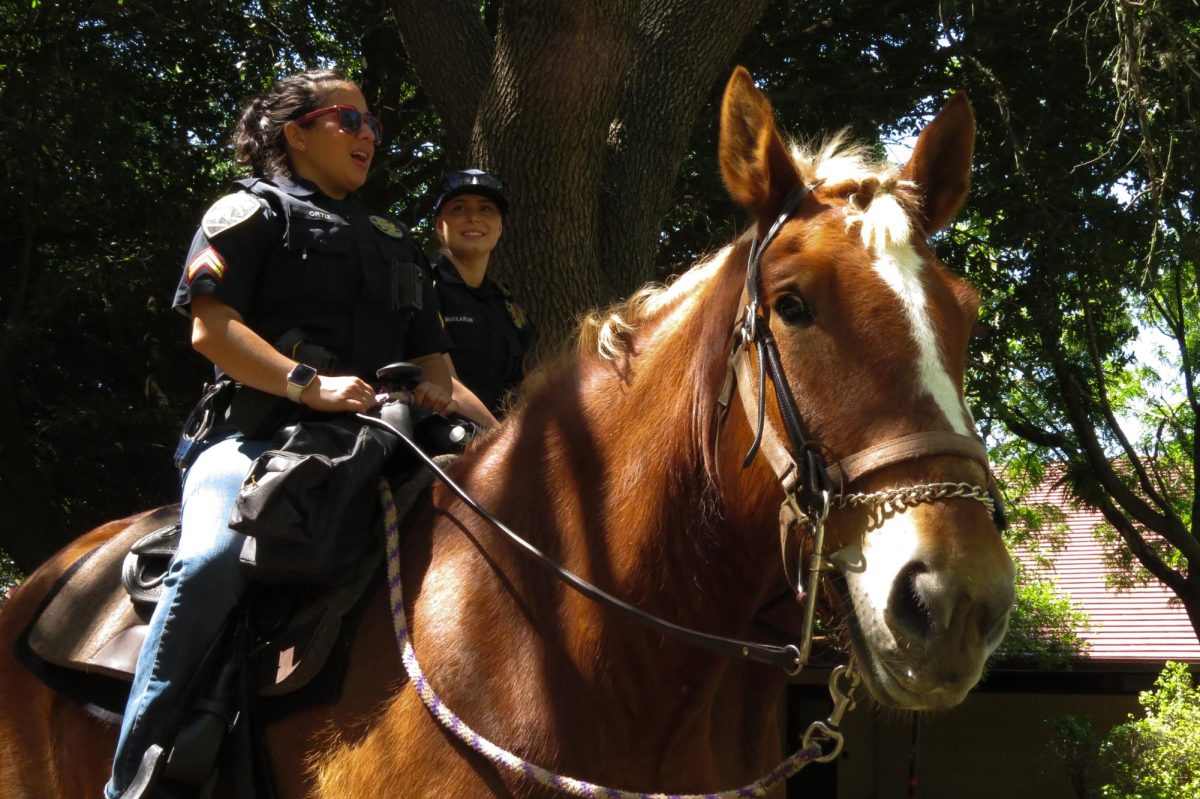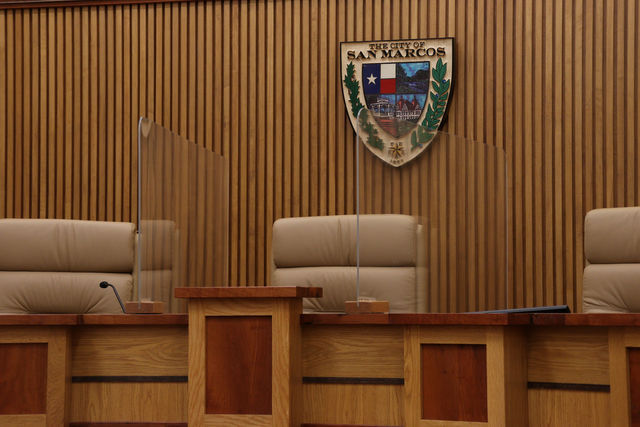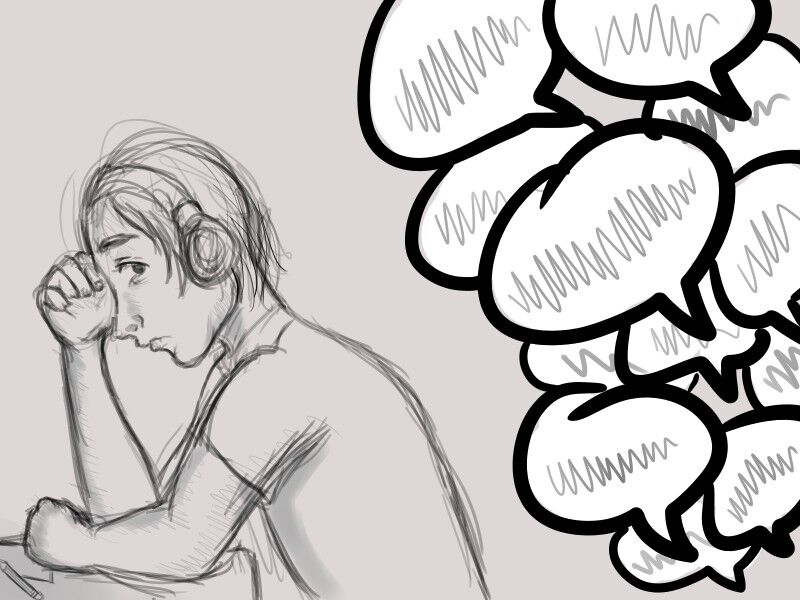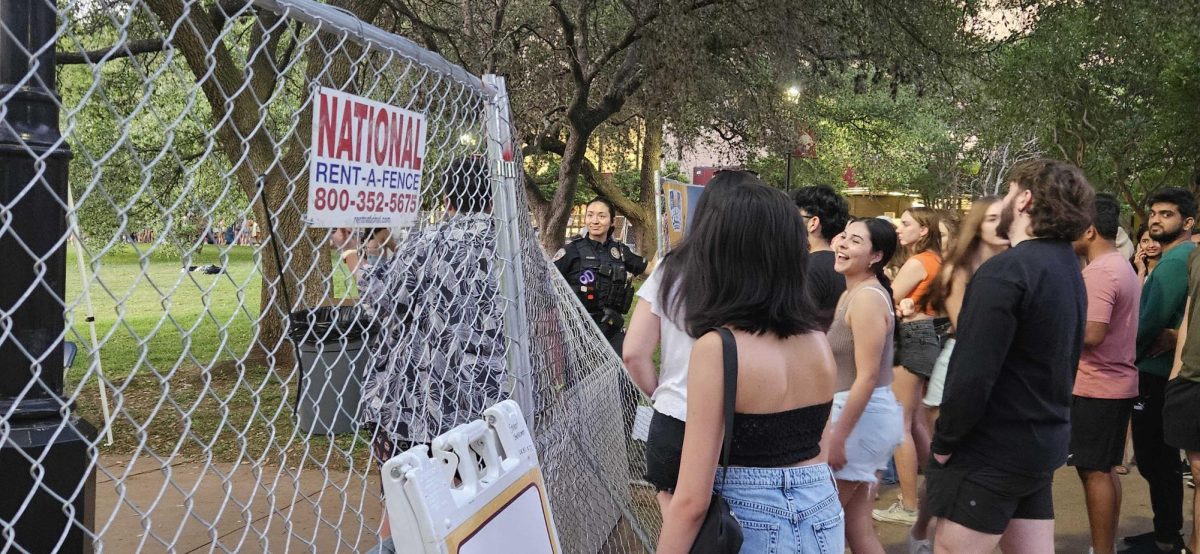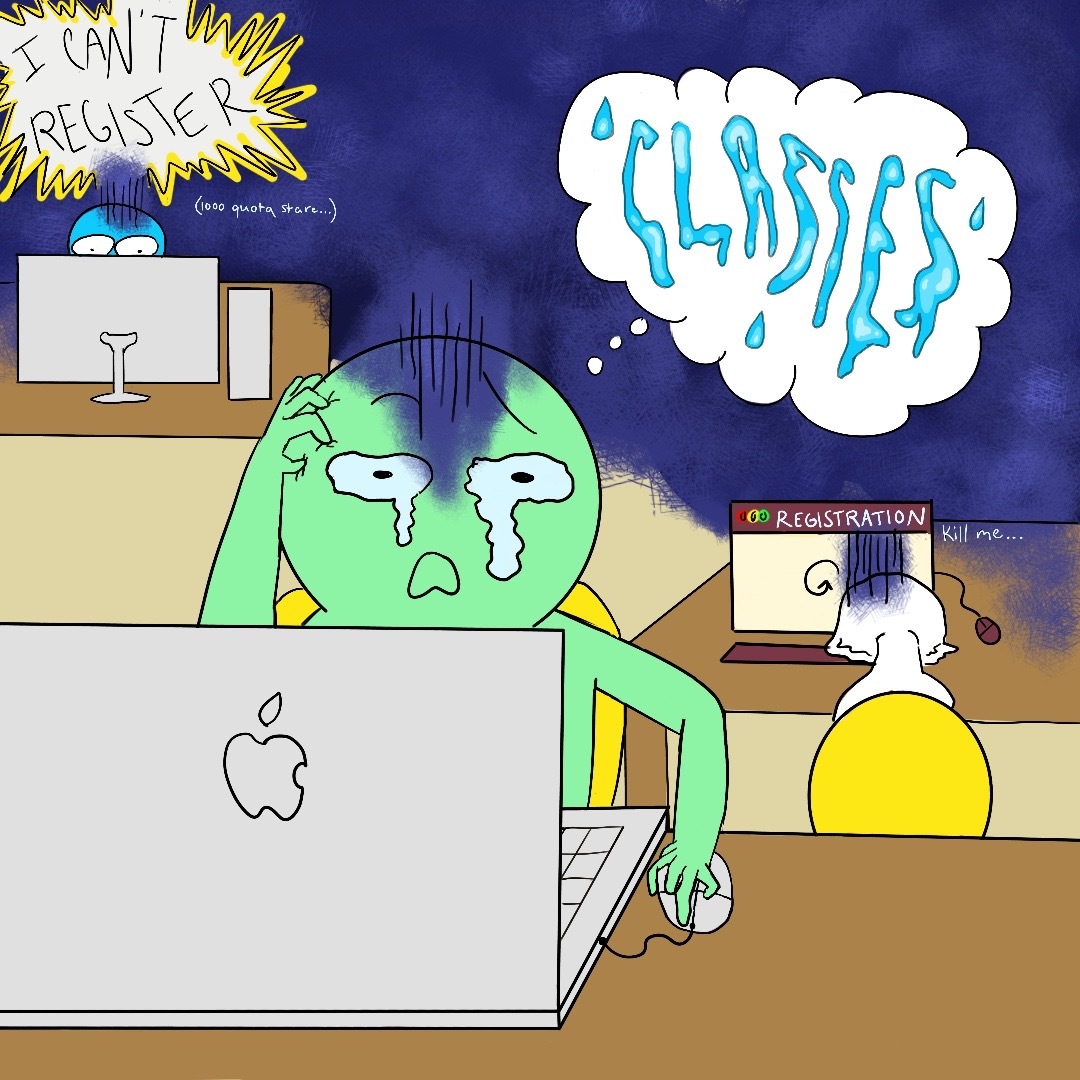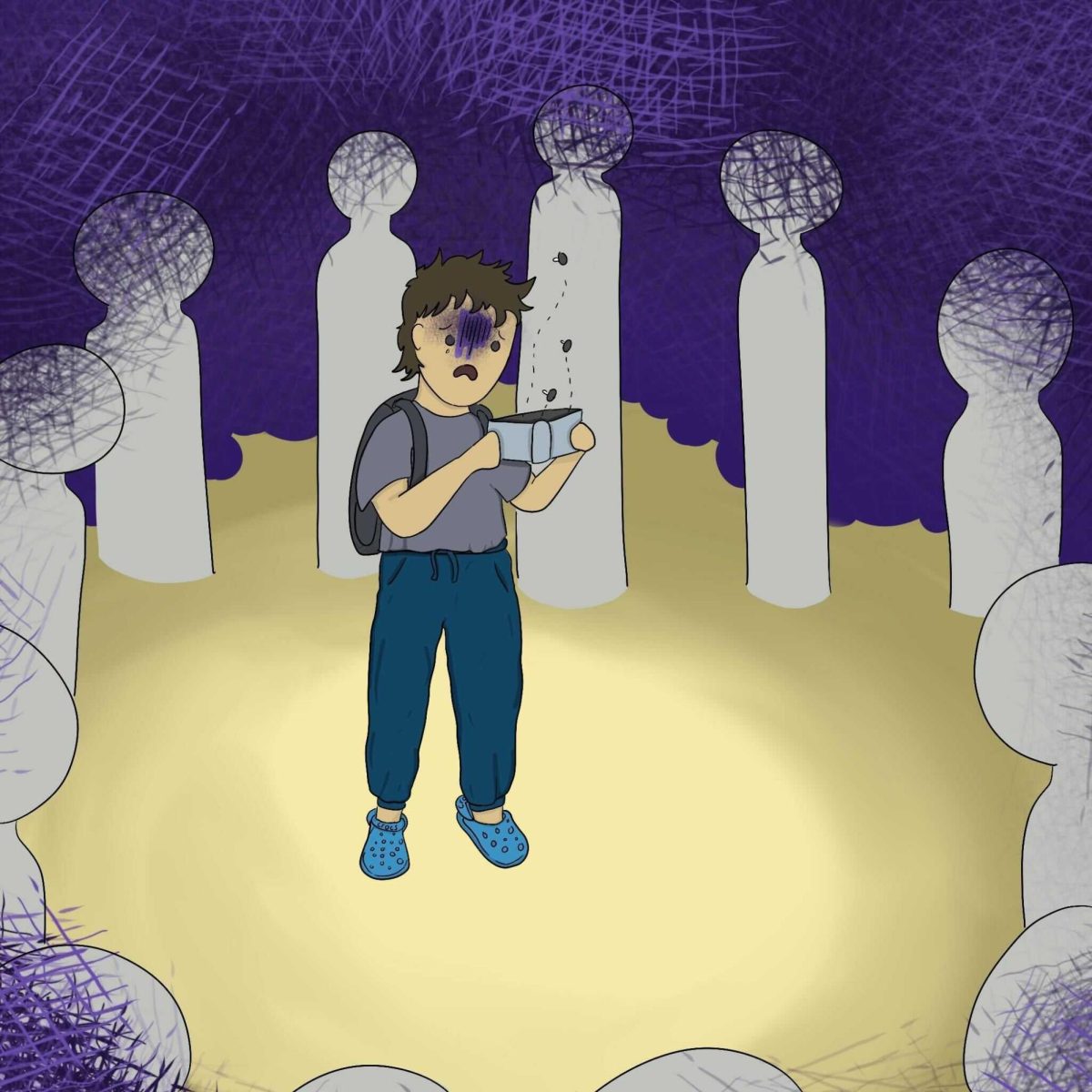Since its opening in 1991, Albert B. Alkek Library has provided countless Texas State students with a safe and resourceful area to be productive. Each of its seven floors contains more than enough space and tools for students to effectively complete their studies.
Like any other library, Alkek should be treated with respect and its visitors should be thoughtful of one another. Unfortunately, this is not the case.
Despite its obvious purpose as a quiet and calm place to study, Alkek has become a popular place for students to socialize. It has become difficult to find a location in Alkek not overrun with cliques of disruptive students who loudly recount previous night’s events or are feverishly planning the next ones.
Unaware and obnoxious students are doing anything but studying and are often a rude distraction to the large chunk of other students in the surrounding vicinity attempting to be productive. Disruptive behavior remains widely unchecked throughout Alkek and has created an environment promoting procrastination rather than productivity.
Due to the degree of disturbances, Texas State administration and Alkek staff should implement a system to monitor and enforce an appropriate noise level on all floors of Alkek Library.
Despite having the ability and privilege to reserve a private study room for free, various organizations and groups have continuously conducted their recurring meetings at public tables. While these spaces are free to use, students attempting to get schoolwork done nearby are interrupted by distractions and noise.
It is common for students to focus on other matters in their lives, devolving meetings into unproductive rants and discourses. It is easy for a group involved in misguided discussions to reach an unruly noise level and disturb those around them without realizing the disruption they are causing. This situation can be frustrating for students who desperately need a quiet place to study or finish assignments.
Loud dialogue—whether a large group or few individuals—is inconsiderate and disruptive and should not be tolerated outside of study rooms. A possible solution to the issue is the implementation of a rule requiring all groups above a certain size to reserve a private study room. This may enable groups to register ahead of time and for staff to police groups violating this rule. Staff could kick assemblies of students out or make them move to another available space.
The easy-to-use system to reserve study rooms is available through the Alkek website and would not be an inconvenience for organizations to utilize. This requirement would not only reduce the noise level but provide more open table space throughout Alkek.
In an attempt to prevent noise issues from occurring, the library provides two silent floors and a noise/security hotline. While both are earnest attempts at noise prevention, they have proven to be generally ineffective.
It is commonplace for several students on silent floors to unapologetically disregard the “no talking” rule and engage in open and free discussion. This behavioral infraction often goes unpunished since the number for the noise hotline is poorly and scarcely advertised. Only one or two small signs with the hotline information, if any at all, are present on each floor.
To halt students from talking when they shouldn’t, Texas State administration should employ a dedicated task force—be it student volunteers or paid staff—whose sole purpose would be to monitor and enforce an appropriate noise level throughout the library.
A Seal Team Six of sound surveillance would periodically patrol each floor of Alkek, ensuring everyone was respecting each other by maintaining a low volume level and not disturbing those around them. The group would be responsible for reprimanding—and possibly removing—offenders.
The implementation of the task force would reduce overcrowding by removing students who do not observe common library etiquette. Additionally, the force would motivate students to behave respectfully in the library, as they would hopefully realize their behavior has consequences.
Disruptive behavior in Alkek is a serious issue and needs to be immediately addressed. While the previously suggested solutions could alleviate some of the problems, the only real resolution lies within the students themselves.
Since a majority of students seem to have trouble grasping the elementary concept of “keeping quiet in a library,” rules and enforcement need to be strongly encouraged and pushed from day one.
-Thomas Dunlap is a journalism junior




